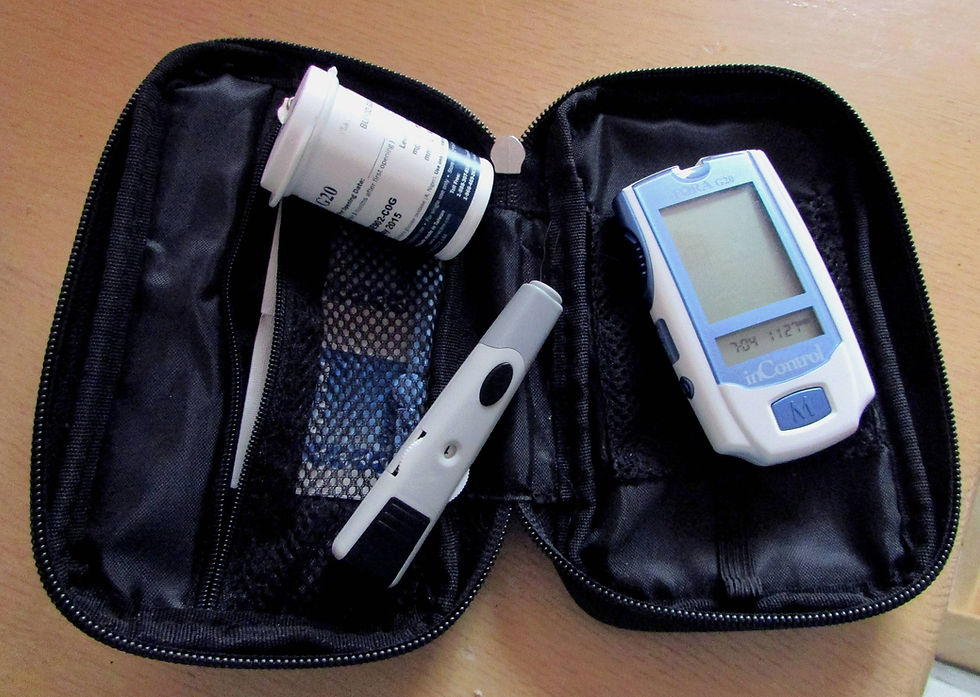The Most Powerful Anti-Inflammatory Foods: What to Eat and What to Avoid
- Amira Rashed

- Mar 24
- 3 min read
Chronic inflammation is at the root of many serious health conditions, including heart disease, arthritis, autoimmune disorders, and even metabolic issues. While some inflammation is necessary for healing, ongoing, low-grade inflammation can contribute to long-term health problems. Fortunately, diet and lifestyle play a significant role in controlling inflammation.
Top Anti-Inflammatory Foods
Turmeric and Curcumin: The Ultimate Anti-Inflammatory Compound
One of the most effective natural anti-inflammatory agents is curcumin, the active compound in turmeric. However, curcumin is not easily absorbed by the body. To enhance its benefits, it should be consumed with healthy fats such as olive oil or coconut oil. Adding black pepper significantly improves absorption due to its piperine content, which increases curcumin bioavailability by up to 2000%. Ginger also works synergistically with turmeric to enhance its anti-inflammatory properties.
Eating the Rainbow: How Different Colors Fight Inflammation
The color of natural foods is not just for visual appeal—each hue represents specific antioxidants and phytochemicals that combat inflammation.
Purple and blue foods, such as blueberries, blackberries, and eggplant, are rich in anthocyanins, which protect against oxidative stress and reduce inflammation. Red foods like tomatoes, red peppers, and strawberries contain lycopene, which has been linked to heart health and reduced inflammation. Orange and yellow foods, including carrots, pumpkin, and turmeric, provide beta-carotene and other carotenoids that have strong anti-inflammatory effects. Green foods such as spinach, kale, and broccoli contain chlorophyll, magnesium, and polyphenols, which help detoxify the body and lower inflammatory markers. White foods, including garlic, onions, and mushrooms, offer sulfur compounds like allicin that support the immune system and combat inflammation.
Antioxidant-Rich Fruits and Their Role in Inflammation
Fruits high in antioxidants are some of the best natural anti-inflammatory foods. Berries, such as blueberries, raspberries, and strawberries, are loaded with polyphenols that help lower inflammation. Pomegranates contain punicalagins, which have been shown to reduce oxidative stress. Cherries, particularly tart cherries, are rich in anthocyanins and have been found to alleviate joint pain and inflammation.
Healthy Fats That Reduce Inflammation
Healthy fats are essential for controlling inflammation, particularly omega-3 fatty acids. Extra virgin olive oil is one of the best sources, as it contains oleocanthal, a compound with similar anti-inflammatory effects to ibuprofen. Avocados are another excellent option, providing monounsaturated fats and vitamin E, both of which have anti-inflammatory properties. Nuts like walnuts, almonds, and macadamia nuts supply omega-3 fatty acids and polyphenols that help regulate inflammation. Fatty fish such as salmon, sardines, and mackerel are among the best dietary sources of EPA and DHA, two omega-3 fatty acids that actively reduce inflammatory markers in the body.
Anti-Inflammatory Herbs and Spices
Certain herbs and spices have been traditionally used to combat inflammation. Ginger contains gingerol, a bioactive compound with potent anti-inflammatory effects. Garlic has been shown to lower inflammatory cytokines and support immune function. Cinnamon helps stabilize blood sugar levels and reduces oxidative stress. Cloves and cardamom are also rich in eugenol, a powerful antioxidant that fights inflammation.
Foods That Promote Inflammation
Reducing inflammation is not only about adding the right foods but also eliminating those that contribute to it.
One of the most inflammatory components in the modern diet is refined vegetable oils, particularly seed oils like sunflower, soybean, and canola oil. These oils are high in omega-6 fatty acids, which, when consumed in excess, can trigger inflammatory processes in the body. Replacing these oils with healthier options such as extra virgin olive oil or coconut oil can make a significant difference.
Refined sugars and processed carbohydrates are also major culprits. High sugar intake spikes insulin levels, leading to chronic low-grade inflammation. Foods such as sodas, candies, white bread, and processed snacks should be minimized or eliminated.
For some individuals, gluten and dairy can also contribute to inflammation, especially if there is an underlying sensitivity or autoimmune condition. Eliminating gluten and dairy for a trial period can help determine if they are contributing to inflammatory symptoms.
Lifestyle Habits That Reduce Inflammation
Diet is not the only factor that influences inflammation. Several lifestyle habits can naturally help lower inflammation levels.
Getting adequate sunlight exposure is essential for maintaining healthy vitamin D levels, which play a crucial role in immune regulation and inflammation control. Daily exposure to natural sunlight or supplementation with vitamin D can be beneficial. Regular physical activity, including walking and strength training, has been shown to lower inflammatory markers. Social connections and maintaining relationships with people you enjoy being around can also help regulate stress, which in turn reduces inflammation. Lastly, sleep is a critical factor—chronic sleep deprivation increases the production of inflammatory cytokines, making it essential to get seven to nine hours of quality sleep per night.
Conclusion
An anti-inflammatory diet is built on a foundation of nutrient-dense, colorful, and whole foods while avoiding processed and inflammatory triggers. By incorporating a variety of anti-inflammatory foods, reducing processed and refined ingredients, and maintaining a healthy lifestyle, it is possible to naturally reduce inflammation and improve overall health.





Comments